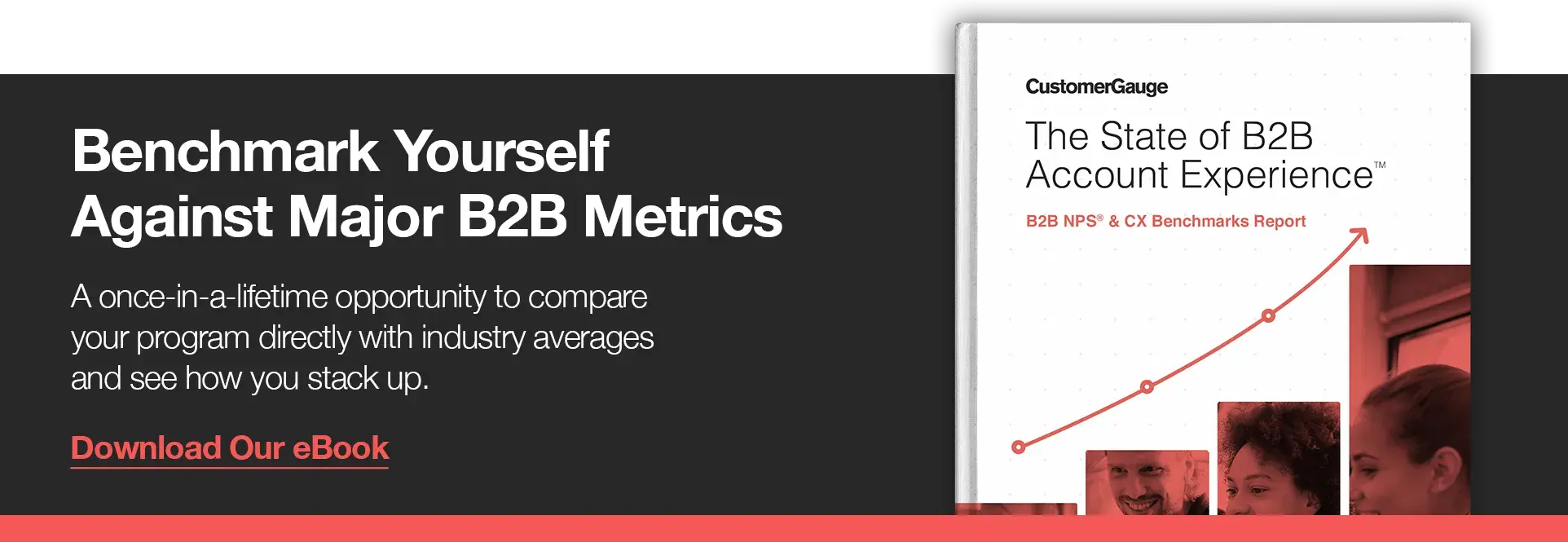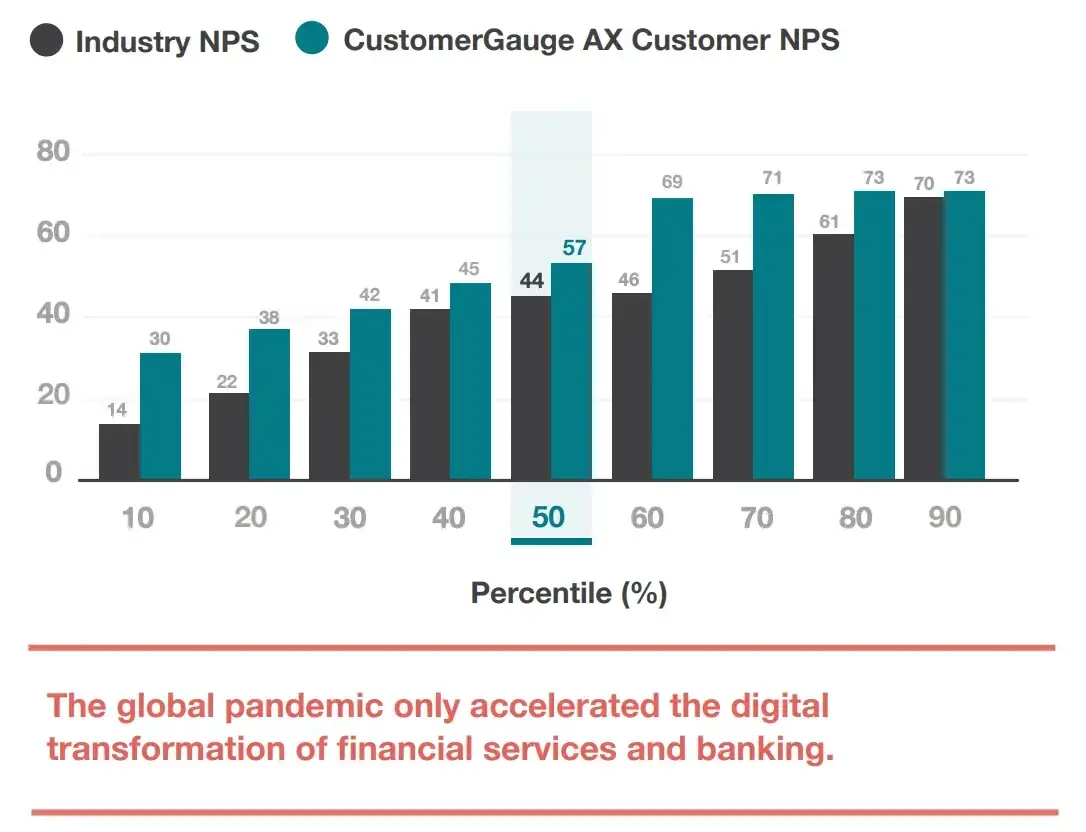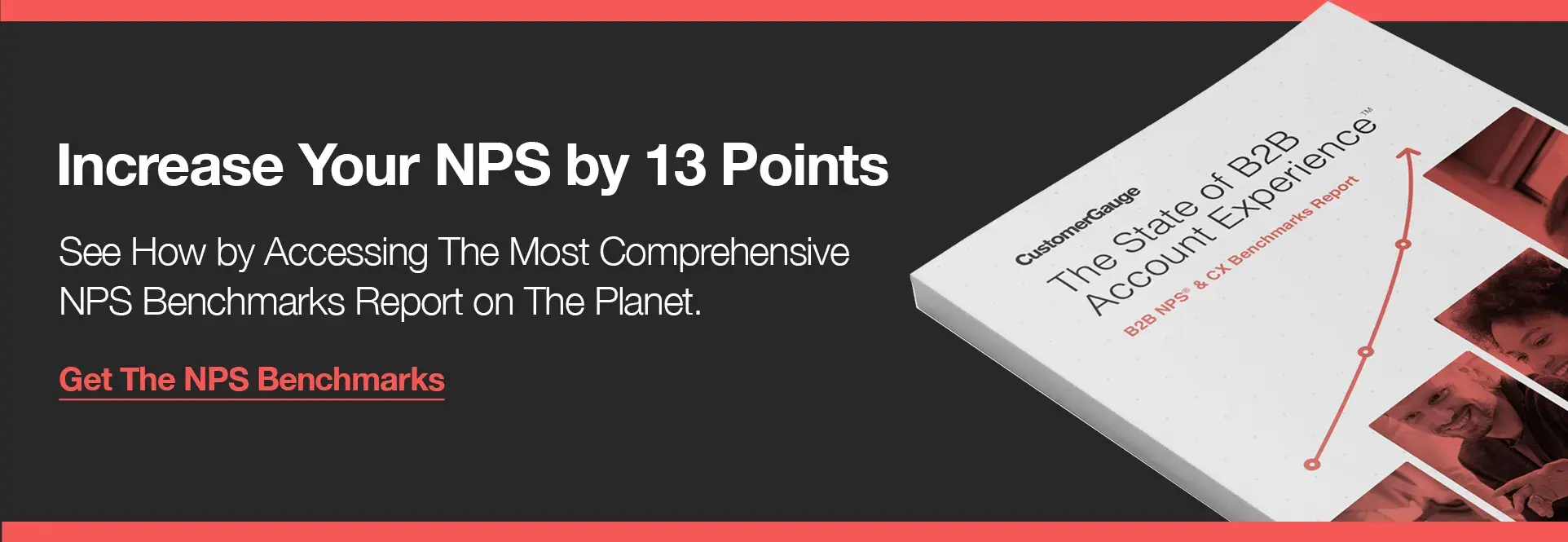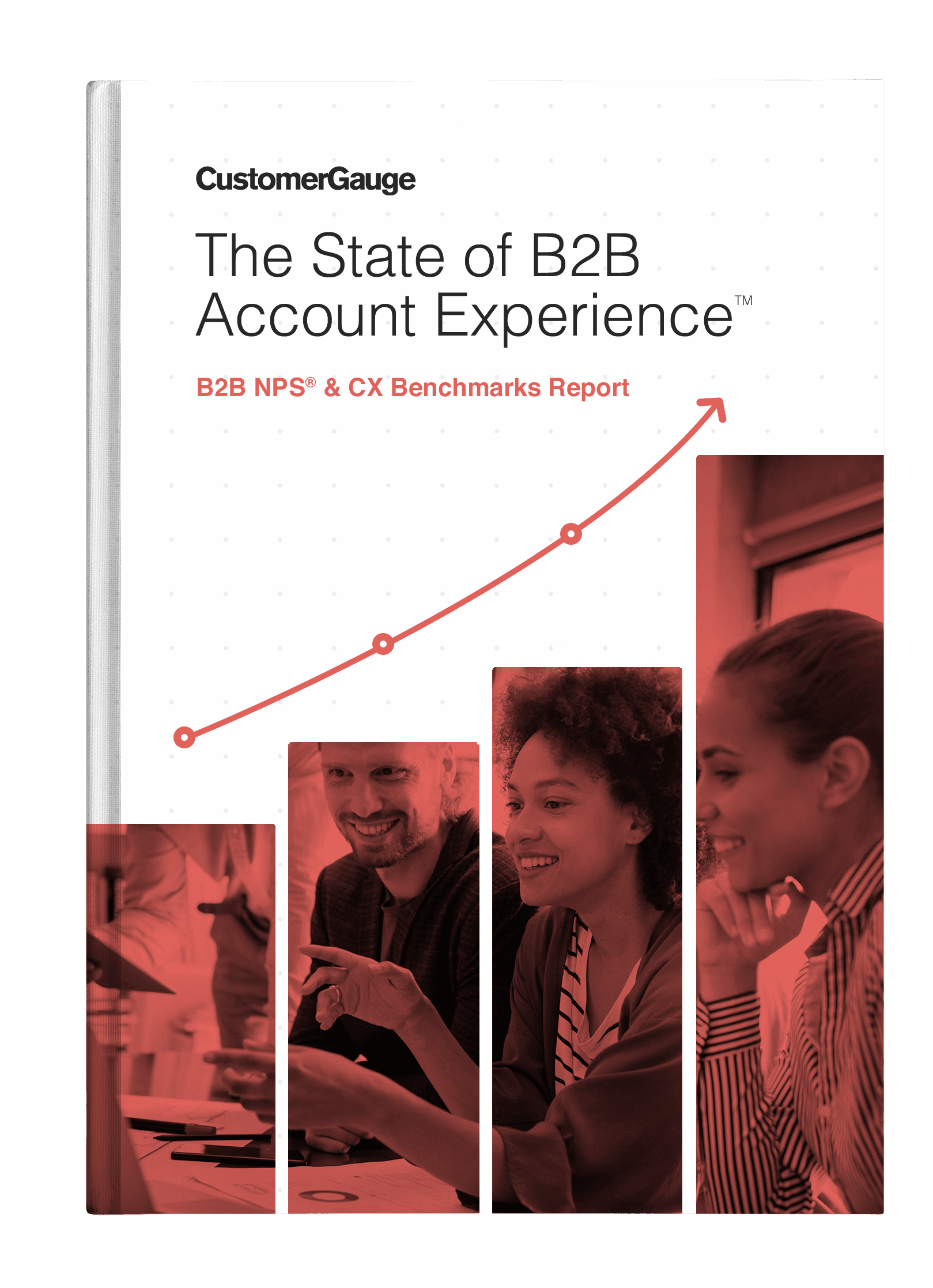Tesla’s NPS Score: What’s Driving Tesla’s Customer Loyalty?
by Ian Luck
Tesla is known for having some of the most loyal customers of any company in any industry.
The company’s customers are committed, passionate, and happy to spread the word. In fact, in one survey, 99% of Tesla Model 3 owners said they would recommend the car to their family and friends, and 98% said they’d buy one again.
These are without a doubt incredible statistics—and it should come as no surprise that Tesla’s Net Promoter Score (NPS) is astonishingly high too. Tesla's NPS score is 97 🤯
For a company that doesn’t do conventional advertising, strong positive word of mouth is a must. And that means exceptional customer experience is too.
In this article, we look at the details of Tesla’s NPS, how it compares to industry benchmarks, and how Elon Musk’s company performs so well.
But first, let’s reacquaint ourselves with NPS.

What is NPS?
NPS, or the Net Promoter Score, is one of the central metrics companies use to measure their customer experience. If you want to get an insight into how your customers feel about your products, brand, and customer service, you’ll want to measure NPS.
NPS is powered by a simple question:
On a scale from 0 to 10, how likely is it that you would recommend our company/product/service to a friend or colleague?

Based on their response, customers are placed into three categories:
Detractors. Citing 0-6 on the scale, your NPS detractors are those customers who are least satisfied with your brand, least likely to recommend it to others, and most likely to churn.
Passives. 7-8. While they won’t spread negative word of mouth, passives aren’t going to actively refer your business to friends either—unless you nurture and nudge them and turn them into promoters.
Promoters. 9-10. These are the customers who are really enthusiastic about what you do. They’ll advocate for your brand, bring in new customers, and help you grow—just like the majority of Tesla’s customers.
From these categories, you need to calculate your NPS score, a score out of 100. To do so, subtract the percentage of your detractors from the percentage of your promoters (you can ignore the passives for this calculation).
So, if you have 80% promoters and 10% detractors, you’ll have a NPS score of 70.
Now, that’s a pretty good NPS score—but it’s not as high as Tesla’s.
What is Tesla’s NPS Score?
According to most recent estimates, Tesla has a Net Promoter Score of 97. That means that the overwhelming majority of the company’s customers are promoters, while less than 2% are passives and detractors respectively.
While Tesla’s NPS score might feel improbably high, there’s no reason to doubt it. In fact, it’s totally consistent with other studies into Tesla’s customer loyalty:
According to a Bloomberg study, 99% of Tesla customers would recommend the Model 3 to friends or family. That’s an incredibly high rate of customer loyalty.
Tesla has the highest owner satisfaction of all car brands, according to Consumer Reports, beating competition from automotive heavy-weights like Porsche and Volkswagen.
A recent study from Experian also found that Tesla is the number one car brand for brand loyalty. According to the survey, 74.7% of people that disposed of a Tesla car bought a new one.
Customer loyalty is having a big impact on growth. In the year to 2021, Tesla’s revenue grew by over 70%.
Is Tesla’s NPS Score Considered Good?
Yes, Tesla’s NPS score is considered good. In fact, it may be one of the best NPS scores of any major brand in the world.
Typically, any score above 0 is generally considered good, as it shows that you have more promoters than detractors overall. Meanwhile, Bain & Company, the organization that invented the NPS Score, says anything above 50 is great, and anything above 80 is incredible.
That means Tesla’s NPS score of 97 really is untouchable.
Of course, though, every different industry has different standards.
While NPS in healthcare expects really high results, NPS in telecoms has a much lower benchmark.
You can find all the details for your industry in the CustomerGauge annual NPS and CX Benchmark report.

How Does Tesla’s NPS Score Compare to Other Automotive Companies?
According to CustomerGauge NPS benchmarks, the automotive industry’s average NPS is 58.
From the data we have, Tesla’s competitors have the following NPS scores:
Honda NPS – 82
Toyota NPS – 43
Hyundai NPS – 69
Harley-Davidson NPS – 52
Rolls Royce NPS – -47
In an industry typically characterized by really strong customer loyalty—with an average customer retention rate of 83%—ensuring excellent customer experience is a must.
And the data suggests that Tesla’s customer experience is really exceptional. Let’s see how Tesla achieves its results.
Tesla Brand Loyalty: What Factors are Driving Tesla’s NPS Score?
How can Tesla secure an NPS score of 97? It comes from a mix of an incredible product, transparent communications at all levels of the business, and a commitment to closing the loop on customer feedback.
An Excellent Product
To start with, Tesla’s customers are incredibly satisfied with the brand’s products—thanks to a great driving experience and perks that are unique in the industry. For example, Tesla can repair cars remotely. If vehicle software plays up, engineers can often fix software at a distance. This delivers a fast response that’s effortless for customers.
Transparency
Tesla has a reputation for honest communication. For a disruptive brand that’s continually pushing the boundaries of what a car can do, this really matters.
In one famous example, manufacturing issues pushed back the delivery date of Tesla’s Model X. Obviously, customers were getting impatient. In response, Tesla decided to be completely honest about the challenges, with Elon Musk directly responding to concerns on Twitter. Without this transparency, Tesla could have lost customer trust.
Responding to Customer Feedback
Customer feedback helps to drive Tesla’s product development—and Musk is incredibly clear about this. It’s said that Tesla makes around 20 engineering changes to its Model S every week, based on feedback on driving experiences or on data insights into car use. This allows the company to continually deliver to customers exactly what they want.
The CEO Closes the Loop
Elon Musk is known for his behavior on Twitter etc. But in terms of customer experience, he is a massive asset. In fact, he’s one of the best examples of a CEO publicly closing the loop with his customers. It makes customers feel heard.
Personalized Buying Experience
Interactions with the Tesla brand are highly personalized—at every customer touchpoint.
For example, once you place an order, you have a week to modify it before the Tesla factory begins work. Then the car will be delivered to you, wherever you are, or you can pick it up at the factory and get a free tour of the site. It’s something pretty unique in the automotive industry.
A Clear Vision and Shared Values
Tesla as a brand is not just about cars. Rather, the organization passionately promotes a vision: that electric vehicles will one day solve the planet’s energy problem. As a result, customers are not just buying a product, but they’re buying into a set of values—and a commitment to make the world a better place.

Improve Your NPS Score with CustomerGauge’s Account Experience
At CustomerGauge, we can help you reach the heights of Tesla’s NPS score. With our customer experience management software, you can monitor and improve customer sentiment at every stage of the customer journey.
That’s not all. Our Account Experience tools allow you to easily understand the impact your customer experience is having on your revenue. Request a demo to learn how.
Frequently Asked Questions About Tesla’s Net Promoter Score (NPS)
1. What is Tesla’s Net Promoter Score?
Tesla’s Net Promoter Score (NPS) is typically around 70 to 80, placing it among the highest in the automotive and consumer tech industries.
2. Is Tesla’s NPS higher than other car brands?
Yes, Tesla consistently outperforms traditional automakers, with an NPS 20–30 points higher than most legacy brands like Ford, GM, or Toyota.
3. Why is Tesla’s NPS so high?
Tesla’s high NPS is driven by product innovation, customer enthusiasm, brand loyalty, and a strong direct-to-consumer experience.
4. What does a 70+ NPS mean for Tesla?
An NPS above 70 means that a large majority of Tesla customers are promoters, likely to recommend the brand to others, signaling strong loyalty.
5. How does Tesla compare to other tech companies on NPS?
Tesla ranks alongside tech giants like Apple and Amazon, which also maintain NPS scores above 70, showing crossover appeal as both an automaker and tech brand.
6. What is a good NPS for the automotive industry?
A good NPS in the automotive industry is above 40. Tesla’s score of 70+ is exceptional, far exceeding industry norms.
7. How is NPS measured for Tesla?
Tesla collects NPS through post-delivery surveys and digital feedback, asking customers how likely they are to recommend the brand on a scale from 0 to 10.
8. Does Tesla’s NPS vary by vehicle model?
Yes, different Tesla models have slightly different NPS scores. Model S and Model 3 often rate highest due to performance and accessibility.
9. Has Tesla’s NPS changed over time?
Tesla’s NPS has remained consistently high but can fluctuate with customer service performance, recall events, or software updates.
10. How does customer service affect Tesla’s NPS?
Customer service can impact NPS, especially delivery experience, maintenance responsiveness, and software update support.
11. What do Tesla promoters say in feedback?
Promoters praise Tesla for its cutting-edge technology, electric performance, and the Elon Musk-led brand vision.
12. What do Tesla detractors criticize?
Detractors often cite concerns about service delays, repair accessibility, and communication issues with Tesla’s support.
13. What is a promoter in the Tesla NPS system?
Promoters are customers who rate Tesla 9 or 10 on the NPS scale, indicating strong brand advocacy and likelihood to refer others.
14. What is a detractor in Tesla’s NPS data?
A detractor rates Tesla 0 to 6, reflecting dissatisfaction with aspects like delivery, repairs, or ownership experience.
15. Is Tesla’s NPS better than luxury car brands?
Yes. Tesla’s NPS of 70+ is higher than brands like BMW, Audi, and Mercedes, which typically score between 30 and 50.
16. How does NPS correlate with Tesla’s growth?
Tesla’s high NPS supports organic growth through word-of-mouth referrals, which has been central to the brand’s marketing strategy.
17. Do Tesla owners recommend the brand?
Yes, most Tesla owners are enthusiastic promoters, with a large percentage actively recommending the cars to friends and online communities.
18. What is Tesla’s NPS in the EV industry?
Tesla leads the electric vehicle (EV) market in NPS, significantly outperforming competitors like Rivian, Lucid, and Nissan Leaf.
19. What does Tesla’s NPS reveal about its customer loyalty?
Tesla’s NPS shows strong customer loyalty, with repeat buyers and advocates helping the company grow despite minimal traditional advertising.
20. What NPS should other EV brands aim to match Tesla?
To compete with Tesla, EV brands should aim for NPS scores above 60, signaling high levels of user satisfaction and advocacy.
21. Is NPS a reliable measure for Tesla’s performance?
Yes. NPS is a valuable measure of customer sentiment, and for Tesla, it reflects both brand health and future growth potential.
22. How is Tesla’s NPS used internally?
Tesla uses NPS feedback to guide product development, service improvements, and software updates, ensuring alignment with customer needs.
23. Is Tesla’s NPS higher than Apple’s?
Tesla’s NPS is similar to Apple’s, with both brands scoring in the 70–80 range, signaling elite brand loyalty and emotional connection.
24. Can NPS predict Tesla’s customer retention?
Yes. Tesla’s high NPS strongly correlates with repeat purchases, upgrade intent, and long-term customer retention.
25. What is the global NPS for Tesla?
Tesla’s NPS may vary by market, but it remains high globally, especially in North America and Europe, where scores often exceed 70.
26. How does Elon Musk influence Tesla’s NPS?
Elon Musk contributes significantly to Tesla’s NPS by fostering brand excitement, vision alignment, and a passionate fanbase.
27. What is the NPS for Tesla’s service centers?
Tesla service center NPS scores vary, generally falling between 40 and 60, with some regions reporting lower satisfaction due to delays.
28. Is NPS used to evaluate Tesla’s software updates?
Yes. Customer feedback on OTA software updates contributes to Tesla’s NPS, especially around usability, features, and system stability.
29. Do Tesla’s Superchargers impact NPS?
Tesla’s Supercharger network is frequently mentioned by promoters and plays a key role in the company’s high NPS, due to convenience and reliability.
30. What makes Tesla’s NPS stand out?
Tesla’s NPS stands out due to strong product advocacy, minimal marketing spend, and a community-driven growth model rarely seen in the auto industry.
Blog Home








